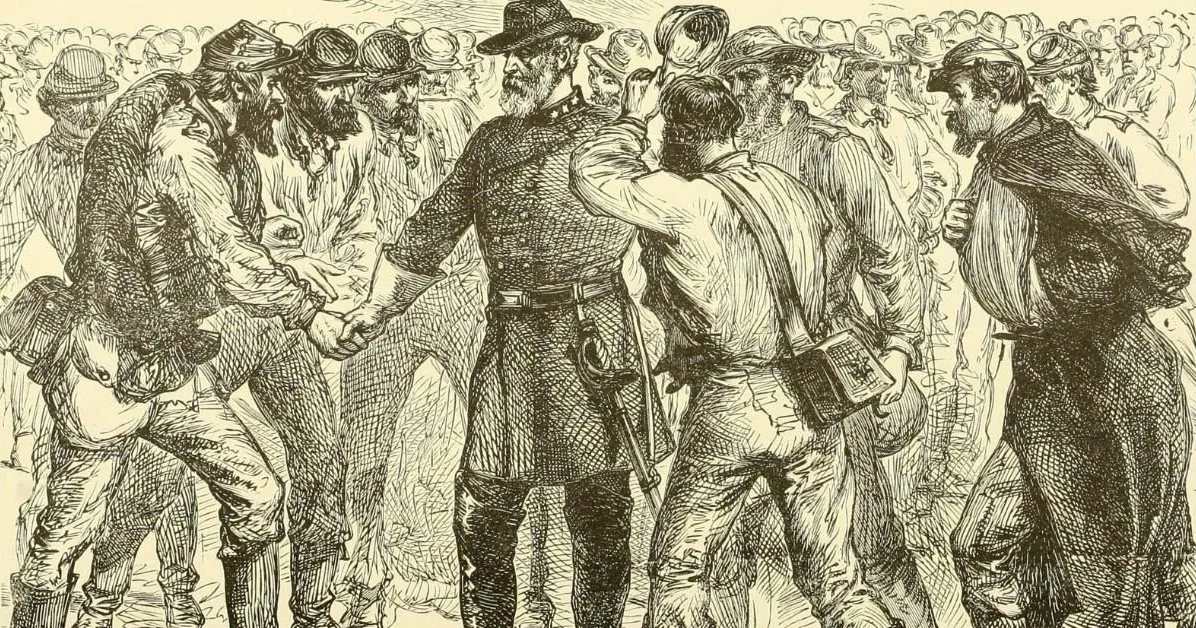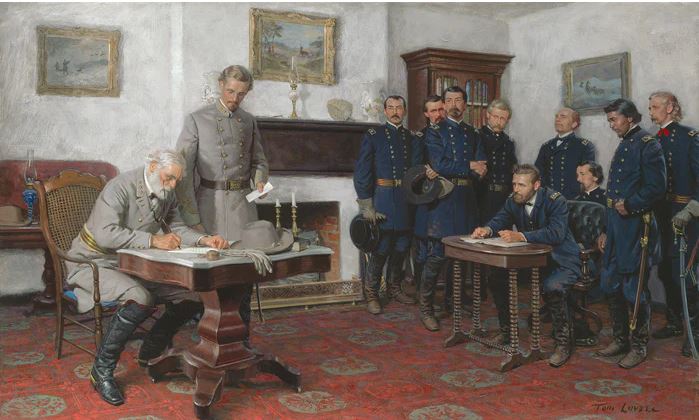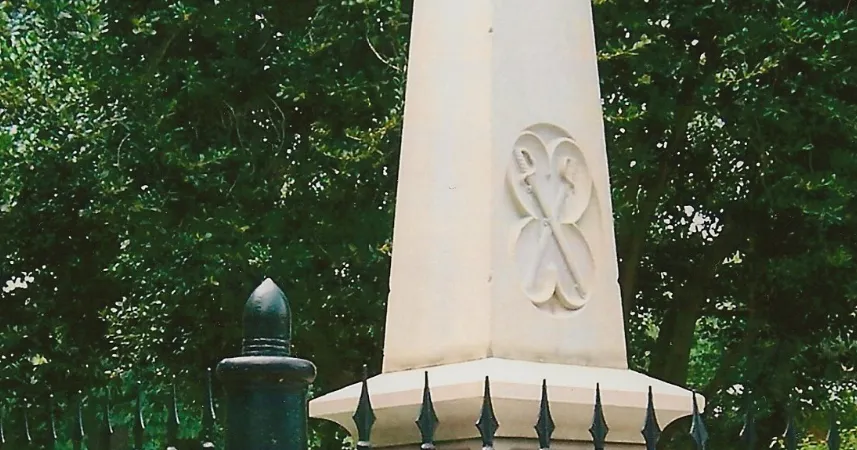Rather than engage in a long winded plea for leniency Lee simply asked Grant to formalize the terms that Grant had previously offered.
By April 9 Lee had Grant's earlier letter offering parole. And Lee had his friend Longstreet with him. Longstreet knew Grant well and Grant had a reputation as fair arbiter of disagreements among cadets. Lee had reasons to trust Grant.
By April of 1865 Lee was no longer the chief military figure of a functioning nation. The decline in Confederate fortunes from Jan 1 to April had been rapid and unmistakeable. Therefore Lee had to know he personally was not surrendering a position that was going to last much longer. I wonder if Lee's anxiety arose from the fact that in surrendering in order to end the killing he was accepting that he had made a tragic error in 1861 by surrendering his US career to pursue a Confederate command.
By surrendering he had to face the fact that Scott had been correct. Dyer had even acquired a non-combat post in Springfield, MA. Geoge Thomas finished the war with a honorable record and the respect of the US army officers. Lee's cousin Samuel had successfully served in several commands in the US navy. And Lee had ruined his career and his future for nothing . He ended up disgraced, at least relative to the US Army, much like his father before him.
And yet in an act supreme courage he led his army to surrender as an army still under the discipline of officers. And that act saved thousands of lives.
The remarks attributed to General Lee claim he knew at the time that he was acting on behalf of the remaining faithful soldiers. His precise words in his final order may not match the words attributed to him. But the sentiment matches.
By April 9 Lee had Grant's earlier letter offering parole. And Lee had his friend Longstreet with him. Longstreet knew Grant well and Grant had a reputation as fair arbiter of disagreements among cadets. Lee had reasons to trust Grant.
By April of 1865 Lee was no longer the chief military figure of a functioning nation. The decline in Confederate fortunes from Jan 1 to April had been rapid and unmistakeable. Therefore Lee had to know he personally was not surrendering a position that was going to last much longer. I wonder if Lee's anxiety arose from the fact that in surrendering in order to end the killing he was accepting that he had made a tragic error in 1861 by surrendering his US career to pursue a Confederate command.
By surrendering he had to face the fact that Scott had been correct. Dyer had even acquired a non-combat post in Springfield, MA. Geoge Thomas finished the war with a honorable record and the respect of the US army officers. Lee's cousin Samuel had successfully served in several commands in the US navy. And Lee had ruined his career and his future for nothing . He ended up disgraced, at least relative to the US Army, much like his father before him.
And yet in an act supreme courage he led his army to surrender as an army still under the discipline of officers. And that act saved thousands of lives.
The remarks attributed to General Lee claim he knew at the time that he was acting on behalf of the remaining faithful soldiers. His precise words in his final order may not match the words attributed to him. But the sentiment matches.




